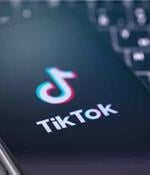Security News

Virginia is about to get a data privacy law, modeled on California’s law.

An umbrella group comprising 44 consumer-privacy watchdog organizations have filed a complaint against TikTok, saying the wildly-popular video-sharing platform has "Misleading" data-collection policies. "TikTok does not clearly inform its users, especially children and teenagers, about what personal data is collected, for what purpose and for what legal reason," said the BEUC, in a report released Tuesday, along with the complaint.

A panel of experts considers the best methods for safe domestic and international air travel including proof of testing, vaccination passports, and digital health passes. A recent panel conducted by the security firm Concentric Advisors, "Protocols, Testing, and Proof of Vaccine-What is the future of privacy and travel?" took a deep dive predicting how domestic and international air travel can be safely mandated during the continuing COVID-19 worldwide pandemic.

Startpage announced results of its survey exploring the attitudes of Americans towards protecting their own privacy online. The results found a gap between the high levels of online privacy awareness and concern respondents report, and the low levels of action they take to combat increasingly egregious assaults on their privacy.

Telegram has fixed a security issue where self-destructing audio and video files were not being deleted from user's macOS devices as expected. Telegram offers a 'Secret Chat' mode that offers increased privacy than the standard chats.

Arlington, Va.-based data privacy management company WireWheel on Wednesday announced that it raised $20 million in a Series B funding round. WireWheel has developed a SaaS privacy platform that can be used by organizations of all sizes.

For globally operating tech companies, these developments point to a future where data privacy will become a compliance minefield. With an incoming Vice President who has a strong record of promoting consumer privacy protection legislation and a substantial political mandate for change, more stringent privacy laws are a question of when rather than if.

Dating has been a lot tougher for singles since the onset of the COVID-19 pandemic, forcing many people onto dating apps to supplement the real thing. Most dating apps require users to enter a significant amount of information for safety purposes, but a new report from Mozilla has found that some of the most popular dating apps take a lot more data from you than you'd expect.

Messaging apps such as Messenger or WhatsApp and video calls on Zoom face stricter privacy rules in Europe, after a draft law passed a key EU hurdle on Wednesday. The EU's 27 member states approved a proposal that was stuck since 2017, with countries split between those wanting strict privacy online and others wanting to give leeway to law enforcement and advertisers.

Elektra Labs and Carnegie Mellon University researchers announced collaboration on an innovative IoT labeling system for understanding the data rights and security practices of connected health sensors. As part of their collaboration, researchers from Carnegie Mellon University's CyLab have contributed their research on an IoT Privacy and Security label as a blueprint, while Elektra Labs is incorporating its own published "Tech nutrition label" recommendations as well.